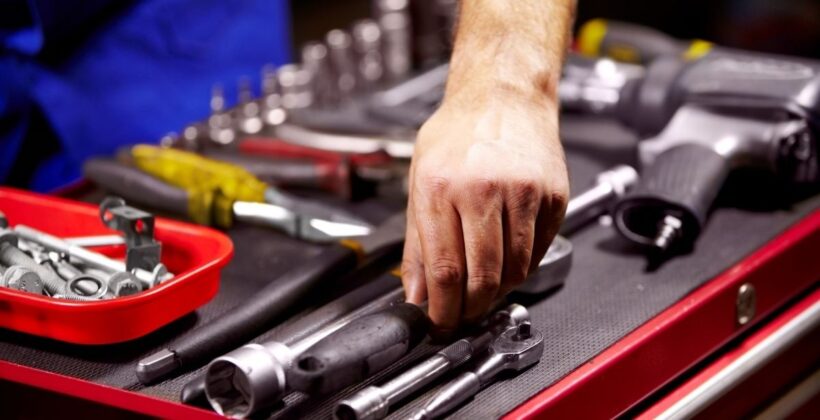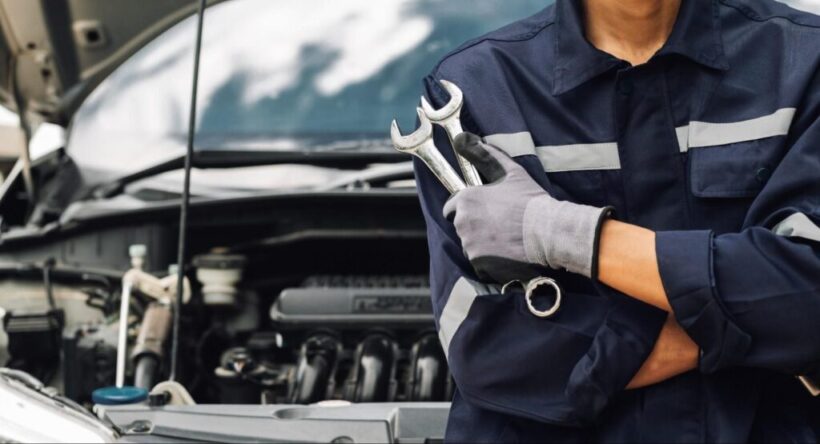Tools. They’re the backbone of any quality workshop. They’re essential to so many different projects and come in a wide variety of different types, styles, and specialties. In the automotive repair industry and beyond, a good set of mechanics the right tools—in the skilled hands of a specialist—can mean the difference between a job well done and a disaster. Getting the right tools can help you take your craft to the next level. In this article, we’ll explore how to select the right tools and how to keep them in tip top shape.
Find The Best Tools For The Job

Elevating your craft as a mechanic begins with selecting the right tools. Every job is different. But some tools are crucial to every aspect of automotive repair. The wrong tool can damage parts, create delays, and shatter the quality of a repair. Good tools improve accuracy, create efficiency, and ultimately lead to better results. Mechanics Tools like screwdrivers, pliers, sockets, wrenches, and hammers should all be of excellent quality. Use the tools correctly and choose the right tool for the job. You wouldn’t use a crescent wrench to remove a lug nut. Exercise and caution and common sense when using your tools and you’ll find they can be put to work for you.
Take Care of Them
Taking care of your tools is all part of running a successful workshop. Be sure to store them properly to ensure they remain in good, working condition. Furthermore, you can prolong their life and maintain their performance. That means cleaning them. Keep all the parts of a particular tool in one place. Lubricate them regularly. Store them in the correct conditions. Don’t keep power tools in hot areas. Keep screwdrivers organized by size. Keep hardware organized in a hardware storage container. The idea here is to ensure you can find the tools you need when you need them as well as prolong their useful life. Taking care of your tools extends their lifespan and ensures optimal performance, ultimately leading to better repair work.
Techniques and Best Practices For Using Your Tools
Maintaining your tools isn’t going to matter much if you don’t know how to use them properly. Miss using a tool can not only damage whatever it is you’re working on, it can be dangerous. Accidents related to misusing tools happen frequently. Every year, around 400,000 people (yes, 4,000!) go to the emergency room due to some power tool related incident. One of the best ways to learn how to use your tools properly is to read the manual. In addition to that, you can ask an expert or fellow mechanic to help train you in the use of the tool. Always inspect them to ensure that they are in good working order before using them. On top of that, safety is critical. Make sure you aren’t overloading the tool if it’s a power tool, using the wrong battery, or using improper fuel. Ensure you wear the proper personal protective gear and safety appointment as well. That way, you can mitigate any potential dangers and stay safe while extending the life of your tools.
Personalizing and Customizing Tools
Another great way to elevate the quality of your tools is to personalize/customize them. Customizing tools can make it easier to do certain jobs. But customization doesn’t stop with tools. It can translate to tool storage as well. You might decide to customize a toolbox or storage container to cater to a specific task. You might put all of your screwdrivers in bits and one storage container and customize it so you can always select the correct one when you need it. Organization matters a great deal in a mechanics workshop—even Popular Mechanics offers a unique method for organizing tools—and can mean the difference between completing a job quickly or drawing it out excessively (which probably won’t bode well for customers).
Mastering Your Tools
Mastering your tools is one of the best ways to build a proper reputation for yourself and ensure high quality work/standards at your workshop. A good set of quality mechanic’s tools is a good place to start and we’ll make a significant difference. Be mindful of how you use the tools and find a way to improve your craftsmanship by mastering what you do. In doing so, you can elevate your work to new heights, set yourself apart from others, and become the go-to mechanic for a wide array of new customers. The key to success is taking the time to develop your skills, infuse some passion into your craft and hone your focus. By focusing on these qualities and mastering your tools, you can position yourself to become one of the best mechanics in the field at some point down the line.


